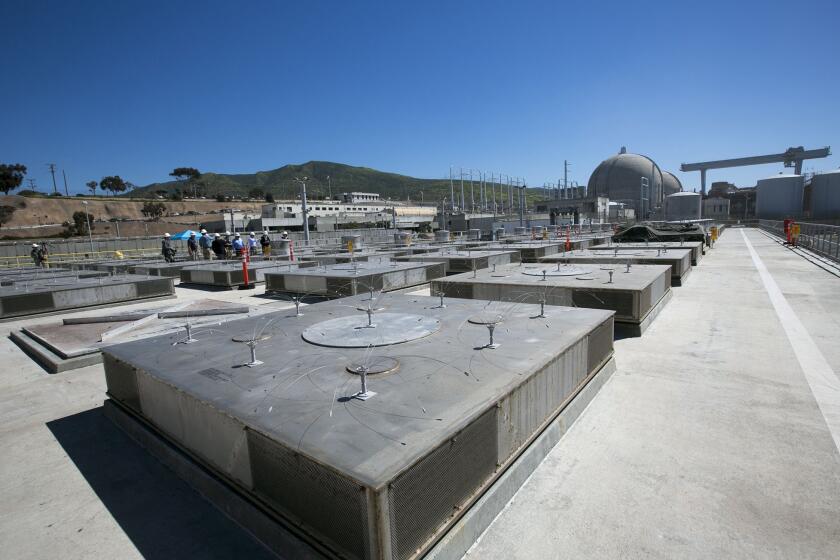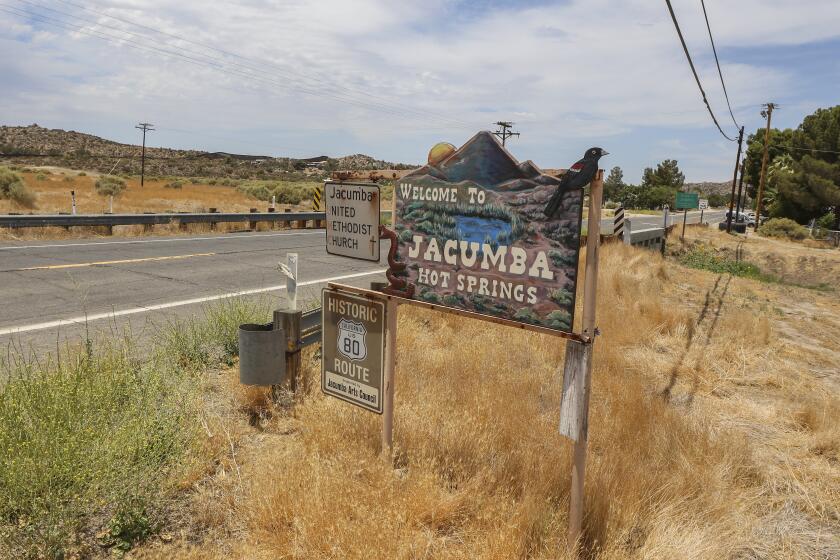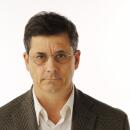Environmentalists sue to overturn San Diego County climate plan
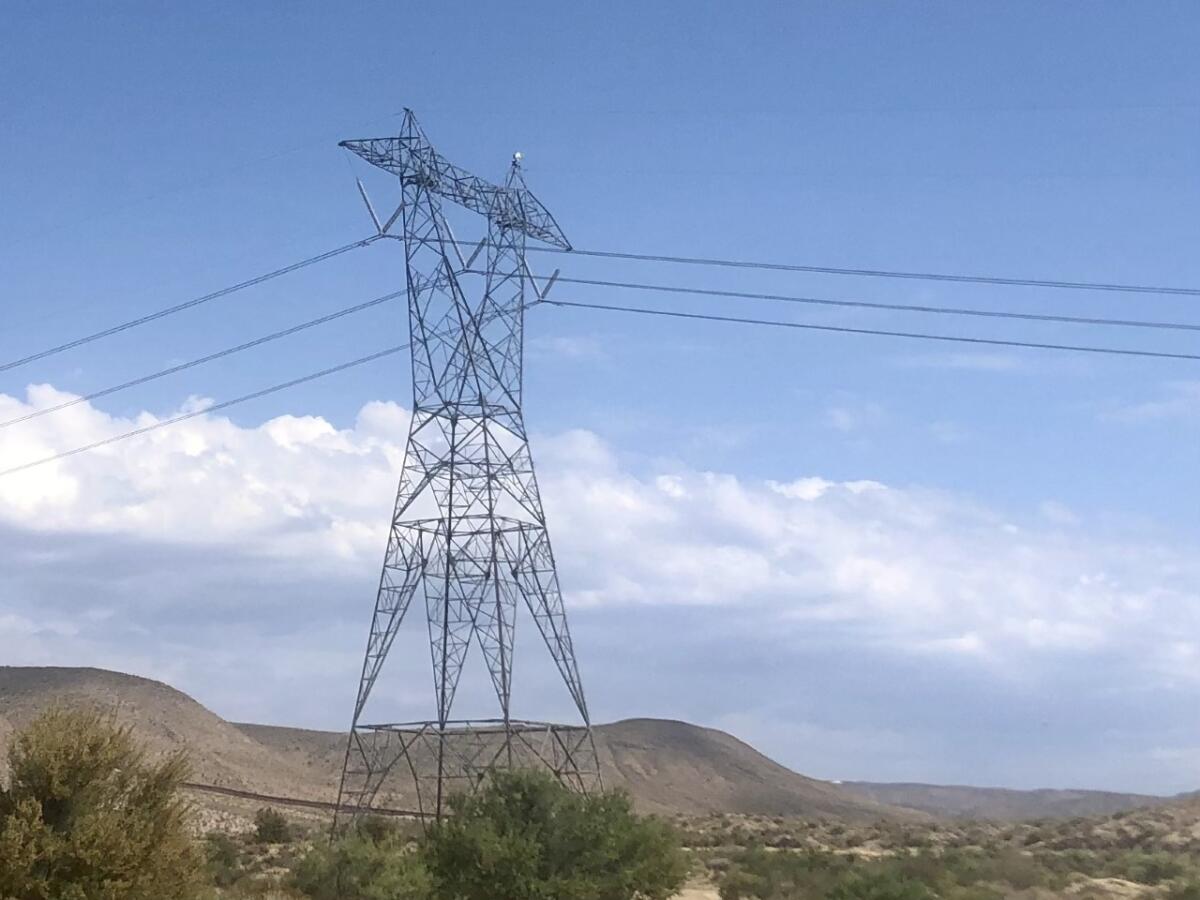
- Share via
An environmental nonprofit is suing San Diego County to overturn its climate-change plan, alleging officials wrongly awarded a no-bid contract to a University of California, San Diego graduate school that it says concealed financial ties between one of its researchers and utility companies.
The lawsuit, filed Monday in San Diego Superior Court by the Protect Our Communities Foundation, claims the county report co-produced by researcher David Victor badly underestimates the promise of locally generated solar power.
Instead, the “regional decarbonization framework” that Victor helped write for San Diego County focused on large-scale projects that require a multibillion-dollar investment in new power lines, the suit says.
“The technical report was prepared by a consultant that failed to publicly disclose its close ties to the investor-owned utility industry, and specifically to San Diego Gas & Electric Co.,” the legal complaint adds.
Utilities like SDG&E have been downplaying the role of residential and rooftop solar in favor of large-scale solar farms because the industrial systems require new and upgraded power lines that generate bigger profits, the lawsuit alleges.
“The investor-owned utility industry financially benefits from construction of capital projects like transmission lines, but does not enjoy such profits from rooftop and parking-lot solar,” it states.
The suit maintains the county bypassed its own bidding process when it retained the UC San Diego School of Global Policy and Strategy to produce the framework.
It asks a judge to direct the county to rescind its approval and implementation of the plan and to put the study out to competitive bid.
The ‘decarbonization playbook’ offers a menu of options for cutting climate pollution in San Diego County.
County officials did not immediately respond to a request for comment on the lawsuit or its allegations.
The University of California regents — who are named as real parties in interest to the case because they oversee UC San Diego and its research groups — similarly did not immediately reply to a request for comment.
SDG&E also did not immediately comment, although the company has publicly pledged to work to achieve carbon neutrality by 2045.
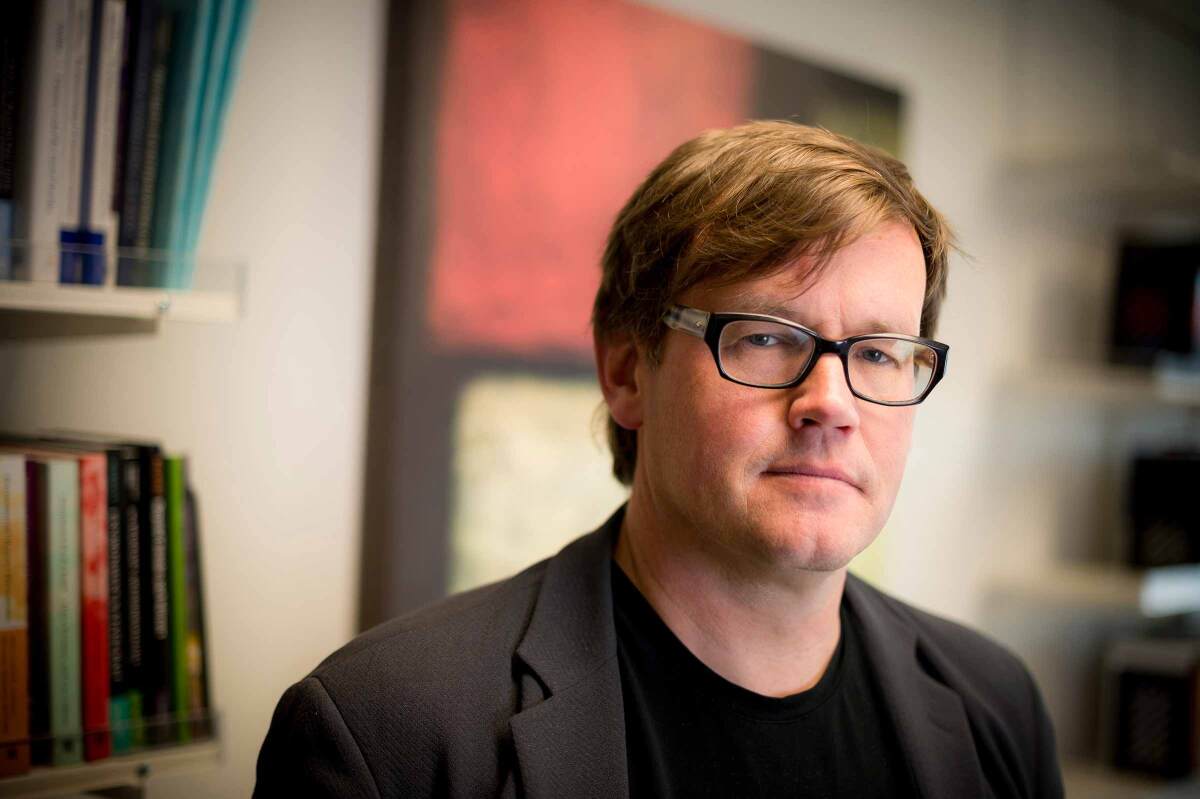
Victor, a UC San Diego professor of innovation and public policy, said in an email that the university does not comment on pending lawsuits.
In addition to his academic work, Victor also serves as chair of the community engagement panel set up by Southern California Edison to monitor the decommissioning of the San Onofre nuclear plant.
The power plant north of Oceanside was closed after a radiation leak sparked by a flawed plan to replace the steam generators. Majority owner Edison said the upgrade would add decades of life to the plant; instead, ratepayers were charged some $3.3 billion in closure costs.
Victor has previously said his work on the panel is based strictly on science and the safe storage of nuclear waste.
A bipartisan coalition will help find ways to move nuclear fuel from sites like the San Onofre Nuclear Generating Station.
The UC San Diego researcher also has been a longtime advisor to the Electric Power Research Institute, a research group funded by investor-owned utilities.
The Protect Our Communities Foundation said it uncovered records showing that San Diego Gas & Electric donated more than $840,000 to the Electric Power Research Institute in 2021, the same year UC San Diego was awarded the contract for the county climate-change plan.
The 2021 contribution was roughly six times the amount donated by SDG&E in the prior two years, the lawsuit said. At the same time, the research group agreed to donate $900,000 to UC San Diego “to support research ‘being conducted by David G. Victor’,” it said.
The lawsuit contends that UC San Diego withheld information from the county about its financial ties to the electric power industry when it accepted the no-bid contracts.
Report spells out the balancing act local leaders must perform to make over the way the region powers its homes, roads and businesses
“GPS failed to disclose that Victor has long been involved with the investor-owned utility companies’ research and development arm, the Electric Power Research Institute,” the suit said.
“Most of EPRI’s members are electric utility companies that provide funding to EPRI for specific research projects.”
San Diego County awarded the no-bid contract to UC San Diego to produce a plan to cut greenhouse gas emissions across the county. The 522-page report released in 2021 said local governments should play a lead role in reaching what’s called net carbon zero — the point at which the amount of carbon removed from the atmosphere equals the amount emitted.
County officials last year increased the initial contract with UC San Diego from $430,000 to $641,000 to suggest ways to implement the framework, which the Protect Our Communities Foundation argues was wrongly skewed toward utility-scale renewable power — large commercial wind and solar fields.
Kearny Mesa project the equivalent of 1,600 Tesla Model 3s, utility officials say.
The lawsuit claims that Victor and other researchers failed to include the $3.9-billion cost of new transmission lines — and the 10 years or more the project would take to develop.
According to the suit, the report also sharply underestimated the production potential for rooftop solar, pegging the capacity for rooftop solar at about 3,400 megawatts, while Google software put the potential production level above 14,000 megawatts.
“The technical report entirely and irrationally failed to quantify the benefits of customer-generated solar, and also arbitrarily reduced the potential contribution of rooftop and parking-lot solar for decarbonization,” the lawsuit said.
The issue of developing large-scale wind and solar projects rather than rooftop solar that does not require long-range transmission upgrades has vexed policymakers for years.
In 2021, an East County community group called Save Jacumba sued San Diego County over the Board of Supervisors’ approval of a 600-acre solar and battery storage project in Jacumba Hot Springs.
The project would cause serious environmental damage and turn Jacumba “into an ugly, foreboding industrial eyesore,” the lawsuit alleged.
The project’s opponents hire law firm that fought to block the Keystone XL pipeline.
Plaintiffs lost their case in September but pledged to take their case to a state appeals court.
And in November, a San Diego Superior Court jury awarded $6.5 million to two Valley Center landowners who argued that a nearby solar farm had damaged their property values.
The Protect Our Communities Foundation lawsuit comes two weeks after more than 100 UC faculty members and graduate students signed a letter to UC Regents that objected to a spate of corporate-sponsored research published by a UC Riverside center.
The five-page open letter questioned the academic merit of work presented by the UC Riverside School of Business Center for Economic Forecasting and Development, which is managed by a for-profit consulting firm called Beacon Economics and pays royalties to the university.
“Beacon co-owner and center director Christopher Thornberg identifies himself as a UCR adjunct professor, but he does not appear in either the UCR business school faculty directory or in the UCR profile directory,” the letter stated.
“In fact, none of the staff of the Center for Economic Forecasting are UCR faculty,” it added.
In recent years, the UC Riverside center released a Lyft-funded study in support of Proposition 22, a 2020 ballot measure that sought to classify delivery and ride-share drivers as independent contractors, according to the Los Angeles Times.
The center also issued a report paid for by the California Restaurant Assn. concluding that restaurant owners had been negatively affected by state minimum-wage increases.
Thornberg defended the center’s work.
“We don’t sell answers. We sell analysis,” he told The Times. “I insist on 100% control over our findings, period.”
A UC Riverside spokesperson said administrators requested that Beacon Economics amend one recently published report. The school’s agreement with the company expired in December, but a new agreement is being negotiated, The Times reported.
The Protect Our Communities Foundation lawsuit has yet to be assigned a hearing date.
McDonald writes for the San Diego Union-Tribune.

